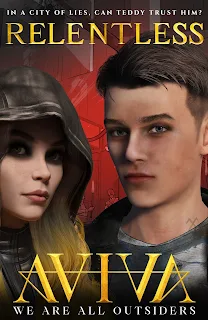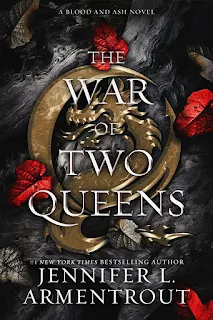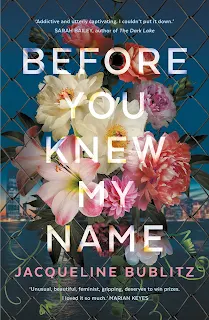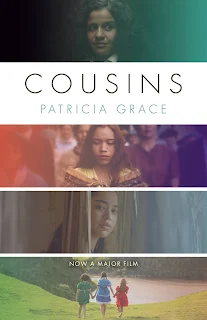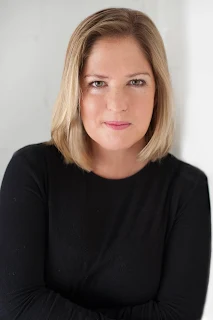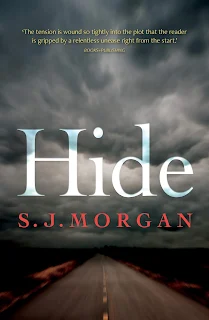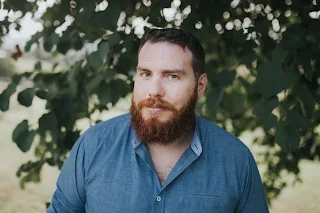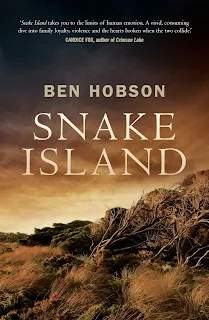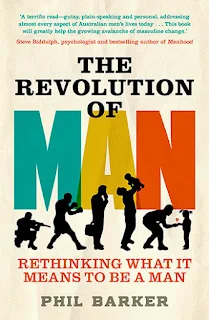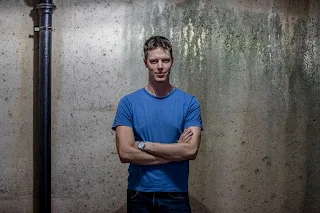Intro
It gives me great pleasure to welcome AViVA to Carpe Librum today! An internationally successful YA author, musician and fellow Australian, AViVA joins me today to celebrate the upcoming release of Relentless on 9 August with a giveaway and Q&A! Pan Macmillan is providing two signed double packs of Self/Less and Relentless for 2 lucky Carpe Librum winners, enter below.
Interview
Thanks for joining us AViVA! Let’s start with an easy question first. Young fan Bridgette loves your music and would like to know if AViVA is your real name?Yes it is!
Being an internationally successful musician with more than 3 billion global streams of your music at last count, how do you balance the competing demands on your creativity for music and writing?
I find the only way to get everything I need to get done is by having routine, rituals, and structure. I get up early every morning (around six AM) and go to bed early, when I can. On tour it is hard to get to bed early but getting up early is almost essential because that is when I get my best work done, while my brain is fresh and not being filled with all the other tasks of the day.
Can you tell us a little about your YA book Self/less and the new sequel Relentless?SELF/LESS is about a girl named Teddy who has grown up in a city where everything is tightly controlled and maintained by the governing body – the Metropolis City Council. She is on the cusp of becoming an adult in the society. She learns some secrets about her families past and discovers some lies from her city. The world she grew up in is devoid of self-expression or creativity and she soon discovers that that isn’t the case for everybody when she discovers the Underground.
In RELENTLESS we continue following on with Teddy as she makes new friends and ends up back in the city, and learns that the cities lies run further and deeper than she could have ever imagined.
Do you need to be in a different environment or headspace to compose and write music or work on a manuscript? Do you immerse yourself in writing and then turn to music, or do you like to do both interchangeably?
I write books very differently to how I write music. When writing melodies and lyrics, I like to go in completely free of mind and with very little ‘pre work’ other than a stimulus word, or an idea of what I want the song to be about. Once I’m in the studio I just go with my intuition and where the song takes me.
When I’m writing books, I like to spend time writing an outline first, it’s impossible to achieve such a large body of work if you don’t know where you’re going. That isn’t to say that I never change what I thought originally, or completely go on a tangent, but before I start writing I like to have an outline so at any point, if I feel lost or overwhelmed, at least I have a ‘map’ that I can check in on — so no excuses to have writers block and ‘not know’ what to do next!
Is there much overlap between the fans of your books and fans of your music?
My fans are very enthusiastic about all my creative works, which is something I am so grateful for. I’m not sure how many fans have read the book, it would be impossible to know, and I don’t know how many new people have found my music through the writing, but the two mediums inform each other, and the world of the story has always been threaded through visually as well as sonically and of course with the themes of self-expression and creativity!!
Your community of fans are known as outsiders. When did you start feeling like an outsider and why are books and YA series about outsiders so popular?
I think we all feel like Outsiders at different times in our lives, there are always those occasions when we don’t feel like we fit in. It is a universal experience yet when we're in the thick of it, it feels like no one else might understand. Anything that helps us understand difficult feelings and emotions makes us feel better, seen, understood or even less alone. I have felt those feelings at times throughout my life because often as an artist and creative person you can think differently to other people — you have to, that is what makes artists dreamers, and it is what makes the art possible. So yeah, I think it’s because we all crave being understood, and the idea that other people feel like outsiders too, makes us feel less alone.
Has the pandemic changed your reading or writing habits in any way?
I am a voracious reader — I like to read a lot and fast, when I’m in a groove I can read a book or two a week, but that changes depending on what I’m working on. If I’m writing a first draft, I try not to read so much because I don’t want to pollute my ideas — I try to get the draft out without reading anything, which is hard because I LOVE TO READ. Once a first draft is done, I go back to my reading schedule which is whatever I like whenever. I will only ever read three books at the same time (if that.) One on paper or my kindle, one audio book and one non-fiction.
Like I said before I get up early and start work early, this means writing or editing (never both at the same time, one or the other depending on deadlines) then business and admin. Once all that’s done I’m free to read (YAY), keep writing/ editing or doing something else creative like sewing and other crafts I enjoy while listening to an audio book. I’m a creature of habits and comfort and keeping this as my general routine (even when away) helps keep me sane and keep my creative well full.
Can you tell us about your other creative pursuits and how you nurture your creativity?
Everything I do is to try and feed my creativity. I read a lot and write my music and books, but I also enjoy a variety of other creative pursuits. I enjoy filling my mind with things that inspire me — it’s a difficult word ‘inspire’ because people often assume that what inspires me will automatically inspire them and that is rarely the case. I look to art, music, nature and from there think about how I’m moved emotionally. Then I pour those feelings into art making in all its forms. I sew clothing, quilts and dolls. I love taking photos and spending time in my garden as much as possible (when I’m at home). I knit and crochet too — my favourite crafts to take when I travel! I go through waves of watching tv or films. When I do watch, it’s only an hour or so a day and that usually bores me after a week or two, so I go back to my art studio and tinker making miniatures, sewing or making mixed media art while I listen to an audio book — that is my favourite way for me to nurture my creativity. Letting my mind wander and just playing!
Do you have a favourite book or series; other than LOTR? I heard you're a big fan of The Lord of the Rings and learned how to speak Elvish. That's so cool!I have forgotten most of what I knew, but when I was fourteen (I think) there was a book on Tolkien’s Sindarin language (A Gateway to Sindarin by David Salo) at my local library and it was ‘reference’ only so I went every day in the school holidays and would pour over it for a couple of hours hand writing notes. This was before phone cameras could easily take photos, or I might have snapped a few pics and not had to go in.
Luckily one of the library ladies noticed I was the same person who had been requesting the book, so she made an exception and let me borrow it for a while.
That was her mistake, because I have a terrible problem where once I take the library book home, it’s nigh impossible for me to get it back (on time … they do get back eventually!) Luckily no one else had requested the book so when it finally got back all was well and my mind was full of inspiration and my heart was full of joy!! Too bad the returning problems didn’t and now I am self-banned from library cards.
That's quite the ban! So, what are you reading at the moment?
I am just about to start The War of Two Queens which is the last in the series From Blood and Ash by Jennifer L Armentrout.
The cover designs for that series are stunning! I understand you enjoy fantasy and science fiction and loved your interview with bestselling author Jay Kristoff. Is there an Australian book or series you believe deserves more attention or you wish was more widely read?I LOVE fantasy and science fiction. They and all their sub genres are my favourites but not the only genres to read in.
One author I have been reading and who has inspired me is Isobel Carmody. Her works are so vivid, and I think that she is recognised as one of Australia’s best fantasy authors so maybe it isn’t the right pick for the questions, but I think if you haven’t read any of her works, that should be remedied. The Obernewtyn Chronicles is the series that I think I first read of Isobel’s.
What’s next? Are you working on a book to follow Relentless?
I have written the first draft for the next book in the series, but currently my attention is all on the first draft for a new series I am working on. It’s a secret project with a whole new world, new characters, and new adventures. I’ve shared a little with my Patrons and they’re going to be first to find out the details of what’s next with this secret project!
Sounds fun, anything else you’d like your fans and readers to know?
Only that they can reach me on socials @thisisaviva pretty much everywhere. I’m always talking about what I’m up to, and I love hearing from readers and fans, so tag me!
Thanks so much for your time AViVA! Enter below for your chance to win a signed AViVA double back containing Self/Less and Relentless.
Giveaway
This giveaway has now closed and the winners will be announced soon.



